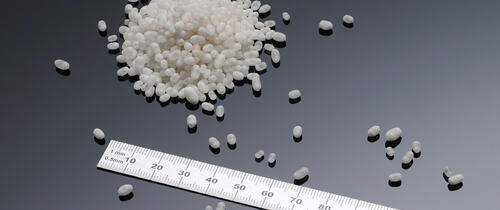At DOMO, we recognize the importance of sustainable agriculture and are actively contributing to the reduction of energy consumption in the production of fertilizers. One key advantage is that fertilizer is a by-product and does not require additional energy to be produced.
Our fertilizers are classified according to EU law and bear the CE marking, ensuring compliance with strict quality and safety standards. This classification provides reassurance to farmers and promotes responsible agricultural practices. In line with the EU's reduction targets, DOMO offers ammonium sulfate as a fertilizer option. This particular fertilizer has the added benefit of promoting nitrogen uptake in crops, which enhances their growth and overall productivity. By incorporating ammonium sulfate into their agricultural practices, farmers can improve nutrient efficiency and contribute to sustainable farming methods.
In summary, farmers demand fertilization solutions that address the nutritional requirements of their crops, align with their farming practices, minimize environmental impact, and offer cost-effectiveness. Meeting these demands requires a comprehensive approach that considers the unique needs and desired results of each farmer and their specific agricultural systems.


